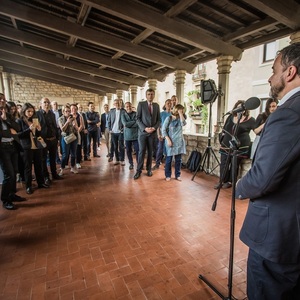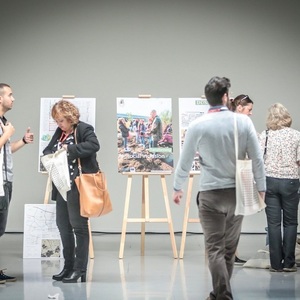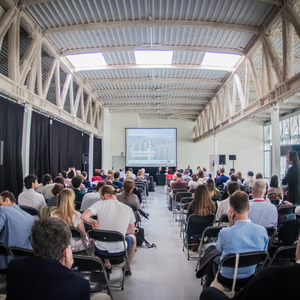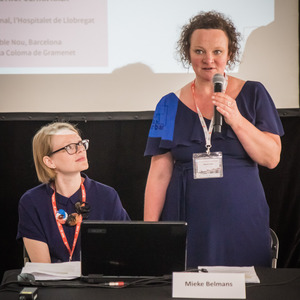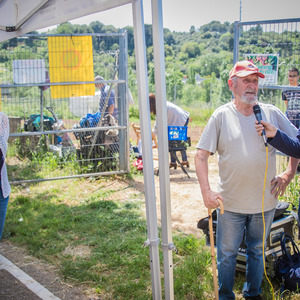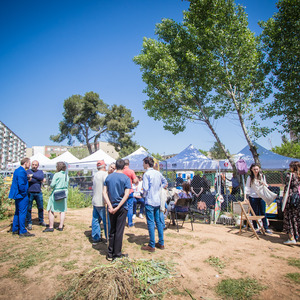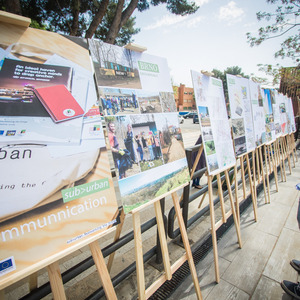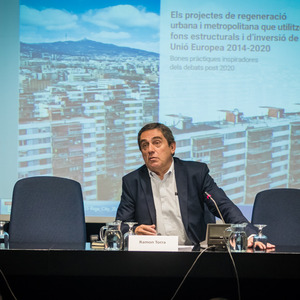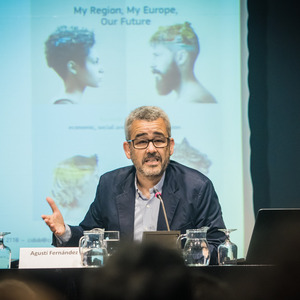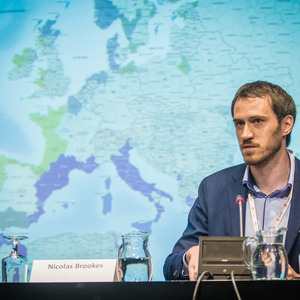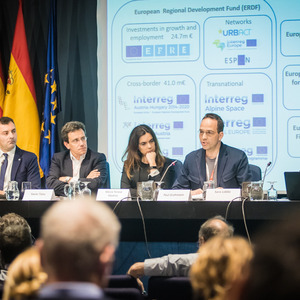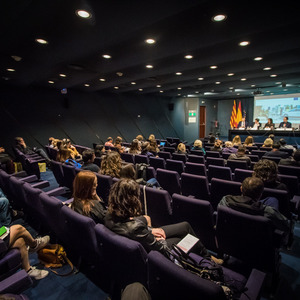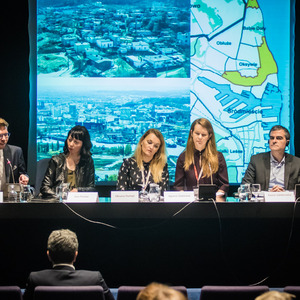Reinventing the "fringe" of our cities, moving towards a "urban regeneration"
| Subject: Urban Planning
140 participants from 15 different cities and metropolitan areas, city council representatives and other institutions from the metropolitan area of Barcelona are taking part in it.
Enhancing the cities' fringes is imperative in order to achieve more inclusive, democratic and sustainable cities.
An agreement between the Government of Catalonia and the AMB will allow the funding of metropolitan projects for and amount of 60 M€ (30 M€ coming from ERDF) until 2023.
On April 26th and 27th two conferences were held within the Final Sub>Urban-URBACT and MEANING, projects lecture. They are both cofinanced by the European Commission, and the AMB, together with other European cities, takes part in them.
140 participants from 15 different European cities and metropolitan areas, city council representatives and other institutions from the metropolitan area of Barcelona take part in the conferences held in L'Hospitalet de Llobregat, the AMB headquarters and in Badia del Vallès.
Enhancing the fringes of the cities is imperative to achieve more inclusive, democratic and sustainable cities. These areas are located between the centre of the city and scattered or peripheral areas, that remain excluded and separated from the main mobility infrastructures or other facilities.
Alfred Bosch, vice-president of the Area for International Relations and Cooperation, gave a welcome speech in the MUHBA venue, where he stressed the need for the European Union to endorse the metropolitan areas and keep on working on projects like fringes in order to transform abandoned and excluded areas into more friendly and welcoming spaces.
The venue for the welcome ceremony and the first presentations is La Florida Market. Ramon Torra, AMB's General Manager, Francesc Belver, deputy mayor of Coordination, Planing and Economic Development (L'Hospitalet de Llobregat), and Nuala Morgan, URBACT representative, attended the event.
La Florida Market is not a meaningless venue. It is a facility and a centrality that has led the regeneration of the neighbourhood, in correspondence with the main subject of the event.
Ramon Torra has welcomed the participants and has stressed the important tole of the AMB in projects such as the Metropolitan Urban Master Plan (PDU).
During the afternoon, technical visits will be made to projects and urban development activities of the AMB, such as the School of Music and Arts Center La Gornal (L'Hospitalet de Llobregat), the 22@ Barcelona the superblocks in the Poblenou neighborhood or in the Pirineus street (Santa Rosa neighborhood in Santa Coloma de Gramenet).
Urban and metropolitan regeneration projects that use EU structural and investment funds will be addressed on Friday 27th morning, with two round tables as common thread of the day. Representatives of metropolitan areas of important European cities such as Milan, Vienna, Düsseldorf, Porto, Zagreb or Riga will attend the event.
The purpose of the session at the headquarters of the AMB will be to know the experience of European cities and metropolitan areas in the use of the EU's structural and investment funds, such as the ERDF, for strategic and urban regeneration projects.
Xavier Tiana, head of the International Relations Service of the AMB, estimates that the agreement signed between the Government of Catalonia and the AMB for the financing of metropolitan projects for an amount of 60 M € of investment (30 M € from ERDF) until 2023 is an unbeatable framework for reinforcing strategic actions of the AMB in management areas such as the improvement of Llobregat and Besòs rivers spaces, the AMB's commitment to sustainable mobility, the promotion of the electric vehicle, smart cities or energy efficiency in metropolitan infrastructures such as the lighting of the Barcelona rings roads.
On Friday afternoon, a visit to the pilot project in Badia del Vallès 'Imagina Badia' is programmed. Many social agents have participated in the drafting of this project: city council and AMB technicians, citizens and associations, with the aim of building a more integrated, healthy and inclusive city.
Reducing the volume of cars, increasing the intermodality of public transport, improving the maintenance of public spaces, fostering access to housing or removing asbestos from buildings are some of the main objectives of a much larger list.
URBACT project within the Sub>Urban
URBACT is a project that allows European cities to work together to develop effective and sustainable responses to the main current urban challenges. It also helps to underline the main role that metropolitan areas have in solving common but increasingly complex problems of a dynamic and changing society. It is funded with European regional funds and with the contribution of those cities. In the case of the AMB, the contribution is 30% of the financing.
The purpose of the Sub>Urban network is to reinvent the fringe neighborhoods and make them more attractive to its inhabitants, to make them active, to have their own identity and to provide them with activities and services so that they are friendly places to live in.
MEANING
MEANING is a project financed by the European Europe for Citizens program in which a group of large European cities and metropolitan areas exchange knowledge and generate a network around the metropolitan phenomenon, the city's attractiveness policies or the management of the structural funds and investment from the European Union. The project is led by the metropolitan city of Milan and has the participation of the Metropolitan Area of Porto, the Metropolitan City of Bari, the AMB, Riga, the Metropolitan Area of Gdansk, Zagreb and ALDA.
Image gallery
Related documents
Related links
Where

Mercat La Florida L'Hospitalet de Llobregat

Seu de l'AMB














































